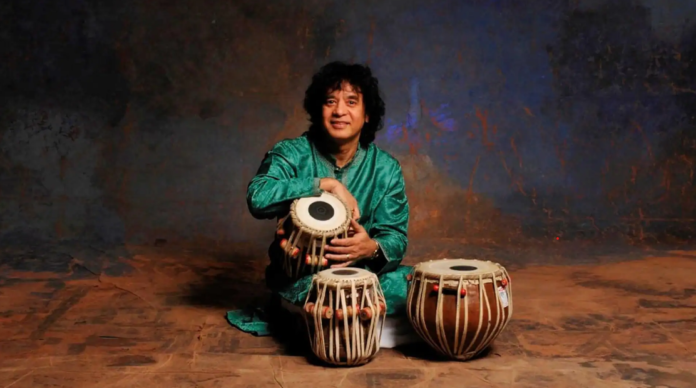Renowned tabla virtuoso and global music icon Ustad Zakir Hussain passed away on Sunday, December 15, at the age of 73. The maestro breathed his last in San Francisco, where he had been hospitalized due to idiopathic pulmonary fibrosis, a chronic lung condition. Despite a valiant battle for his life, his health deteriorated, leading to his untimely demise.
The family released a statement confirming the news, describing Zakir Hussain as a teacher, mentor, and cultural ambassador whose contributions to music will remain unparalleled. “His prolific work as a teacher, mentor, and educator has left an indelible mark on countless musicians. He hoped to inspire the next generation to go further. He leaves behind an unparalleled legacy as a cultural ambassador and one of the greatest musicians of all time,” the statement read, while requesting privacy during this time of mourning.
Earlier confusion over the news of his death arose when conflicting reports surfaced. While some reports announced his passing, his nephew and sister initially denied the claims, stating that Zakir was critically ill but alive. However, confirmation of his demise emerged in the early hours of Monday, leaving the nation in shock and grief.
Zakir Hussain’s contributions to Indian classical and world music have been transformative. Born in 1951 to legendary tabla maestro Ustad Allah Rakha, Zakir Hussain displayed prodigious talent from an early age, performing publicly by the age of seven. Over the decades, he redefined the art of tabla playing, blending technical brilliance with emotive depth, and bringing Indian classical music to global prominence.
His collaborations spanned an impressive range of genres and artists, including Pandit Ravi Shankar, Ustad Amjad Ali Khan, George Harrison, and Mickey Hart. In 1970, he co-founded the fusion group Shakti with guitarist John McLaughlin, pioneering a unique blend of Indian classical music and jazz influences. Other notable projects, such as Remember Shakti and Planet Drum, showcased his innovative spirit and earned international acclaim.
Zakir Hussain’s artistic legacy extended beyond performance. He composed scores for films like Heat and Dust and In Custody, as well as for ballet and orchestral productions, further cementing his place as a versatile musician. His accolades included the Padma Shri and Padma Bhushan, among India’s highest civilian honors, and a Grammy Award for Best Contemporary World Music Album.
Tributes have poured in from across the globe. Colonel Rajyavardhan Rathore expressed his condolences on social media, saying, “Ustad Zakir Hussain’s extraordinary mastery of the tabla has created a timeless legacy in the world of music. His rhythms will echo in our hearts forever.” Journalist Pervaiz Alam had earlier shared news of his hospitalization, urging fans to pray for his recovery.
Zakir Hussain’s passing marks the end of an era in the world of music. His artistry, innovation, and dedication to spreading Indian classical music globally have left an indelible imprint on generations to come. As the nation mourns the loss of this musical genius, his rhythms and melodies will continue to resonate as a testament to his unparalleled contribution to the world of music.



